To the people here, she is not only a doctor but also "Mother Thanh who protects the Party" - the one who silently lights up faith in the middle of the Truong Son mountain range.
Fateful decision
The red dirt road to Mo O in the hot noon sun, the Lao wind drying each clump of cassava. After passing the bumpy curves, the simple corrugated iron house appeared; the ashes of the stove were still red, the smell of forest medicine lingered. On the wooden shelf, mixed between the medical records and the land donation books, was the old resolution book. Mrs. Ho Thi Thanh smiled gently: the papers could not record everything. The village and the Party cell still existed, thanks to these things.
The fire in the kitchen smoldered, preserving the memory of a fateful decision. At the end of 1982, having just graduated as a medical student in Hue, student Ho Thi Thanh was assigned to the Huong Linh Commune Regional Health Station. “I was so happy at that time,” she recalled. But the joy was short-lived. Before taking up the task, she asked permission to visit her family for three days. As soon as she reported the good news, her grandmother held her hand: her grandchild was trusted by her superiors, she was so happy. But yesterday in the village, two mothers died after giving birth, and the two poor children had no one to take care of them. At her workplace, there were medical staff , but here, no one cared.

The next day, the young girl traveled to see the two orphans with her own eyes, her heart aching. That image cut deep into her mind, following her all the way home. That night, she tossed and turned: following the decision meant having a job, an allowance, a stable future; but staying... “I thought about it for a long time. In the end, I chose to stay,” Mrs. Thanh said, her eyes red as if reliving the fateful moment.
In the first months of returning to Phu Thieng, Ms. Thanh traveled to each household, knocked on each door: encouraged hand washing, boiled water; told pregnant women not to build huts to give birth alone at the edge of the forest... But the cries of farewell still continued. Ho Thi Loc died because of a retained placenta infection. Ho Thi Dam, Ho Thi Dinh suffered from postpartum hemorrhage... "Every time like that, I could only cry, it was so painful. But then I told myself, I have to be patient so that people will believe me," Ms. Thanh choked up.
In August 1983, a measles epidemic spread throughout the village. Hearing that two children had high fevers and severe coughs, she rushed over. The two children were the most seriously ill, so she encouraged the family to carry them to the provincial hospital. The road was long, there were no motorbikes, and very few cars came and went, and the hospital only had a trip at 3 p.m. The hospital could only save one child... For the remaining children, she and the villagers picked leaves, boiled water for them to drink, and wiped their bodies to reduce fever. Luckily, they all recovered. "At that time, I thought I had only completed a very small part of the plan I had set for myself," she recalled.
Then Mrs. Thanh continued the story on the morning of February 25, 1984. After pounding rice, she went down to the stream to bathe. Hearing that on the other side of the stream there was a woman who had not given birth for three days, she rushed over. In the makeshift tent, the shaman was performing a ritual; the mother was cold and nearly exhausted. She asked permission from the shaman and relatives, begged for a long time, and finally the family agreed to let her deliver the baby. At 5:00 p.m., the cry of a newborn baby rang out, and the whole village burst into joy. That turning point made the villagers completely believe in her hands, gradually abandoning the old jungle custom...
Since then, the burden on her shoulders has become heavier. During the day, she promotes vaccinations and provides hygiene guidance; at night, whenever someone is sick, she climbs mountains and wades through streams, while people use bamboo tubes to light the way. “Some nights I am so tired, but I still have to go, because if I give up, a life can be lost,” she said.
During those years, there were many orphaned children, deprived but eager to learn. Mrs. Thanh accepted them as her own children, as her support when she was sad, hoping that one day they would take her place in helping the village.
From a handful of medicinal leaves to pages of resolutions
Van Kieu village was extremely poor. Women with big bellies still picked cassava, carried firewood, and waded across streams. Children coughed and sniffled, their hair tanned by the sun. Amidst the hardship, faith in “Mrs. Thanh” gradually grew stronger. Whenever someone was sick, people would call; whenever there was a difficult birth, people would run to her kitchen - where there was always red ash, a pot of boiling water, and bandages ready to be collected.
People used to call her a “mobile clinic”: from calendar covers to medical records, from handfuls of forest leaves to medicine. Sick people no longer sought out shamans first, but called “Mrs. Thanh” first. A cadre of Phu Thieng village recalled: at that time, the Party cell was almost paralyzed. People trusted shamans more than cadres. Thanks to Mrs. Thanh’s work, trust returned. People came to the clinic instead of shamans.
In 1985, seeing her working day and night, both tiring and having difficulty taking care of other patients, the villagers asked the People's Committee of Mo O commune (before the merger) to arrange a permanent workplace for her. Half of the communal house was partitioned off, becoming the first medical station in the village. In January 1996, she received her first allowance: 350,000 VND. Although the amount was small, to her it meant more medicine for the poor, more gas for the trips taking patients to the hospital. From that year on, she was assigned to be the station chief. A small wooden cabinet was filled with medical records, the letters smeared with sweat from the forest. Rain or shine, the half-room of the communal house was always lit late at night.
A big milestone has come. In 2004, after the election of People's Council delegates at all levels, she was transferred to become Chairman of the People's Committee of Mo O commune. She could not help but worry because half of her life had been spent with the people through each illness and each difficulty. When the news came, the people were attached, and her superiors encouraged her: "The district and provincial medical facilities are now spacious, Ms. Thanh just changed her workplace, whenever needed, just look for her." Taking on the new assignment, Ms. Thanh still regularly returned to the village and the people whenever someone was sick or needed...
Explaining why she is still attached to the village and the Party cell today, she slowly shared: for many years, without the consensus of the villagers and Party members, I could not have done anything... Then she emphasized another milestone: before 2004, many commune Party cells did not have a single female Party member. Since 2004, superiors have focused on developing female Party members. In the Party cell where she works, the percentage of women has reached 43%. By 2005, the commune had a Party Committee because the number of Party members had increased...
“However, developing the party is still very difficult, especially when young people - both men and women - go to work far away. Many women are busy making a living and taking care of their families, so they miss the opportunity to strive. I just hope that superiors pay more attention to the work of developing female party members, even in businesses,” Ms. Thanh shared.
From a handful of medicinal leaves to pages of resolutions - it is a journey of transformation: from the spontaneous belief of the villagers to organized belief in the Party. "Without Mrs. Thanh, the old custom would have continued for a long time. Now, people give birth at home with nurses, more children live, and the village is happier," a village elder shared.
For many years in the position of Chairman and then Secretary of the commune, Ms. Thanh still wears plastic sandals and carries a cloth bag around the village. Whatever the people are afraid of, she does first. When there are false rumors, she goes to each house, sits by the fire to remove each layer of doubt... The leader of Huong Hiep commune shared: Ms. Thanh's reputation does not lie in her position. It comes from the years she has been with the people, wading streams and climbing passes. Whatever she says, the people listen, because people believe in what she has done. It is from these "done things" that the Phu Thieng Party Cell has a firm foothold: the resolution is no longer a strange piece of paper, but has become a guideline attached to each vaccination case, each ditch, each household escaping poverty.
Leaving her post, Ms. Thanh returned to her old corrugated iron house, continuing her role as a “prestigious person”. For more than 40 years, her real reward is probably that the children who were almost buried with their mother have now become teachers and commune officials. Every time they return, they hug her shoulders, tearfully asking: “Is Mother Thanh still well?”…
From the tears of rainy nights to the smiles of today's youth, a continuous stream has flowed through her life: the stream of medical ethics transformed into mass mobilization, of mass mobilization transformed into resolutions lived in village life. Former Secretary of Dakrong District Party Committee (before the merger) Nguyen Tri Tuan affirmed: in highland communes like Quang Tri , for many years, the people's trust in the Party came from the footsteps and hands of women like Ms. Ho Thi Thanh. They were the ones who kept the thread connecting the people with the organization in the most difficult times.
Leaving Phu Thieng in the late afternoon, the mountain wind blew fiercely over the hill. The red dirt road still bore the footprints of plastic sandals - the footprints of people carrying baskets of rice, medicine, and the entire Party cell. If Ka Day had Ho Thi Nam to keep the Party together by knocking on the door, Chau Son had La Thi Van mixing mortar and wading through mud to build the Party cell, then Phu Thieng had Ho Thi Thanh - the person who held the Party cell together with a handful of wild medicine leaves and a fire that was always burning.
Source: https://daibieunhandan.vn/nhung-nu-dang-vien-giu-lua-giua-dai-ngan-bai-3-nam-la-thuoc-cua-me-thanh-10390554.html



![[Photo] Conference of the Government Party Committee Standing Committee and the National Assembly Party Committee Standing Committee on the 10th Session, 15th National Assembly](https://vphoto.vietnam.vn/thumb/1200x675/vietnam/resource/IMAGE/2025/10/15/1760543205375_dsc-7128-jpg.webp)
![[Photo] Many dykes in Bac Ninh were eroded after the circulation of storm No. 11](https://vphoto.vietnam.vn/thumb/1200x675/vietnam/resource/IMAGE/2025/10/15/1760537802647_1-7384-jpg.webp)


![[Photo] General Secretary To Lam attends the 18th Hanoi Party Congress, term 2025-2030](https://vphoto.vietnam.vn/thumb/1200x675/vietnam/resource/IMAGE/2025/10/16/1760581023342_cover-0367-jpg.webp)


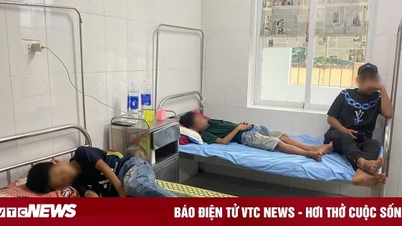





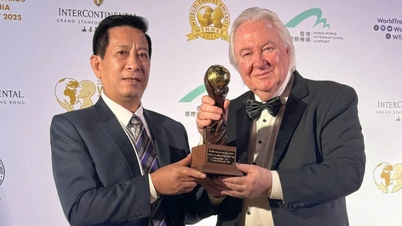


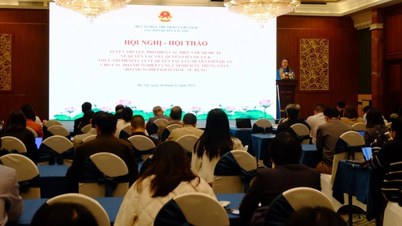


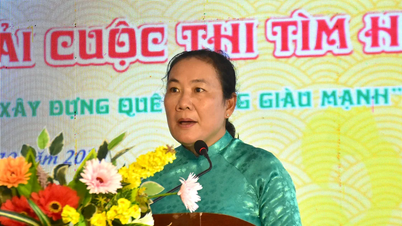



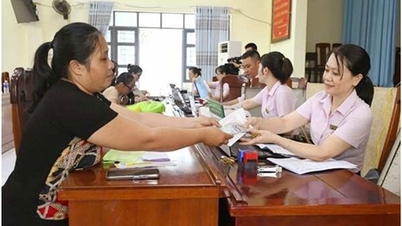





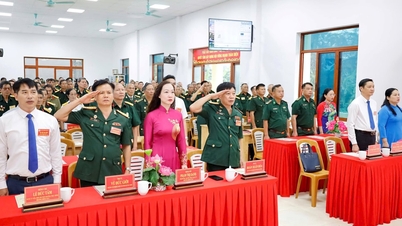
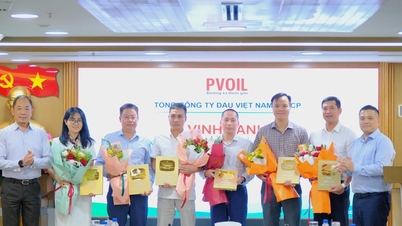


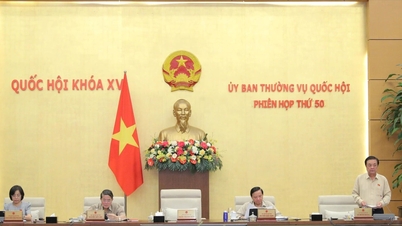
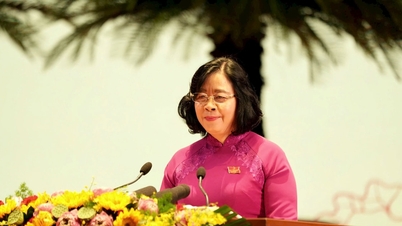

![[Video] TripAdvisor honors many famous attractions of Ninh Binh](https://vphoto.vietnam.vn/thumb/402x226/vietnam/resource/IMAGE/2025/10/16/1760574721908_vinh-danh-ninh-binh-7368-jpg.webp)



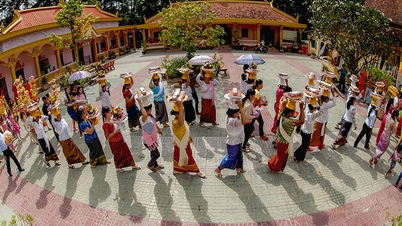

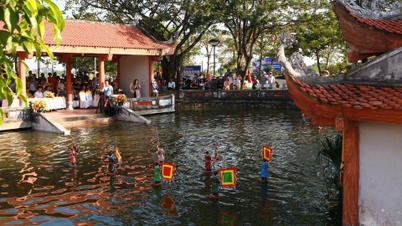




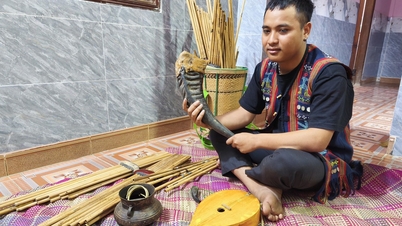
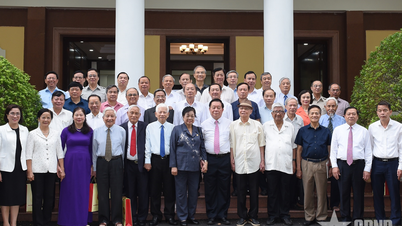

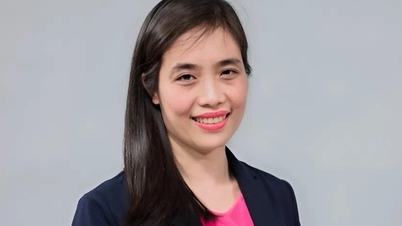


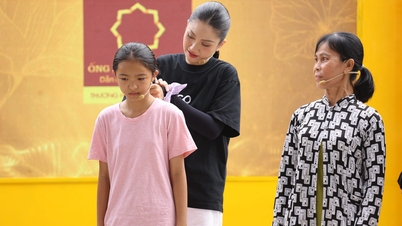


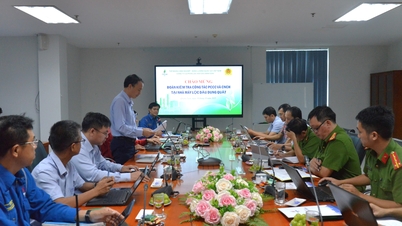







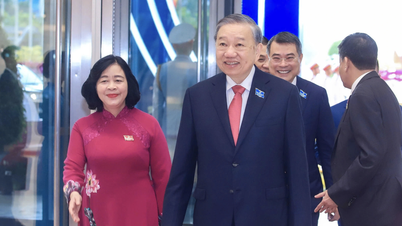

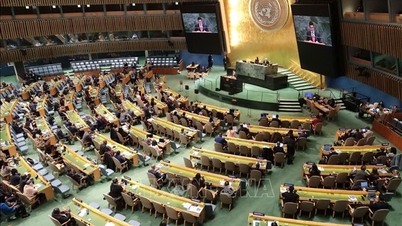
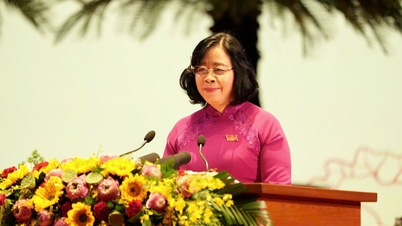


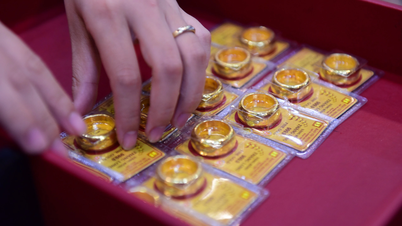


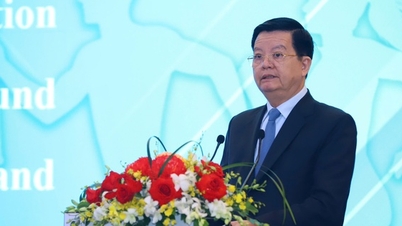
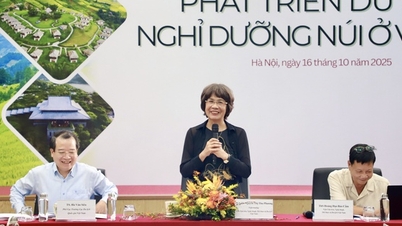

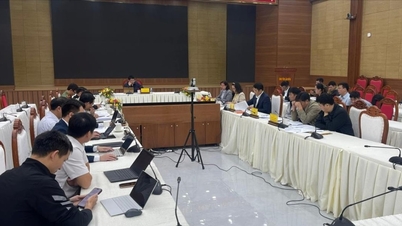



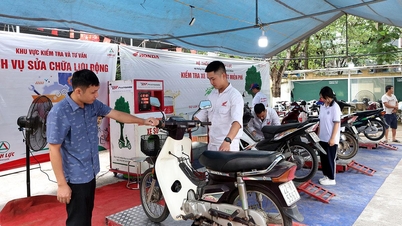


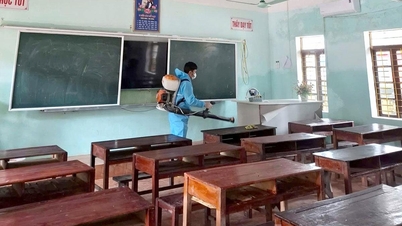
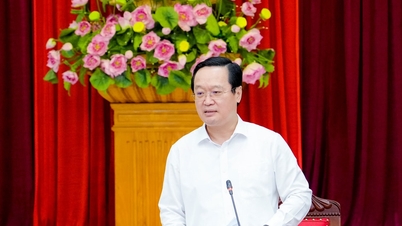














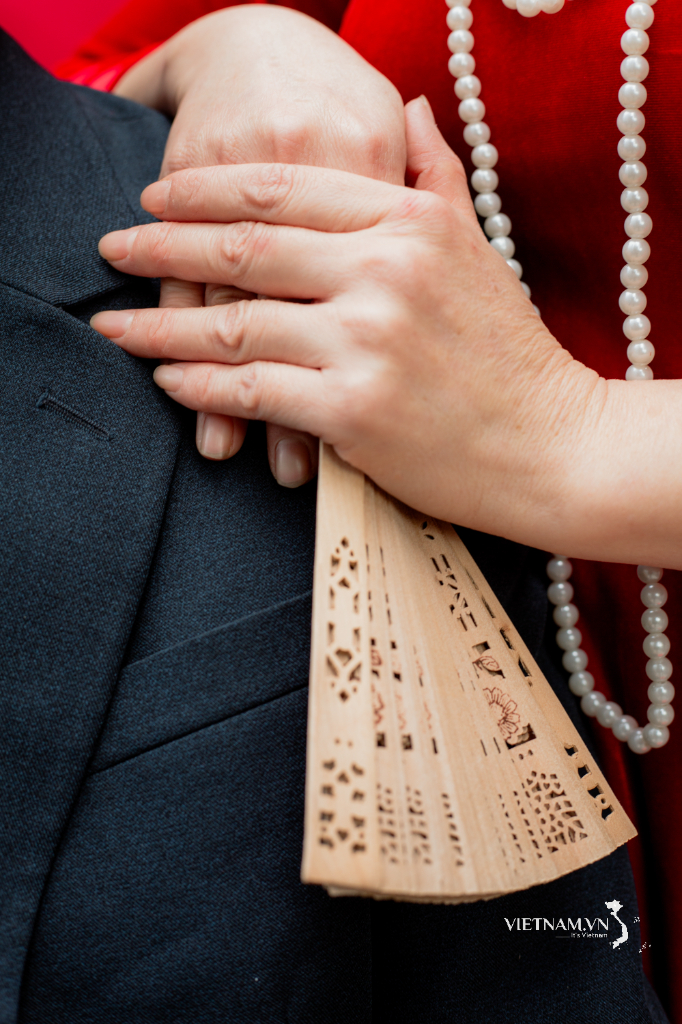



Comment (0)